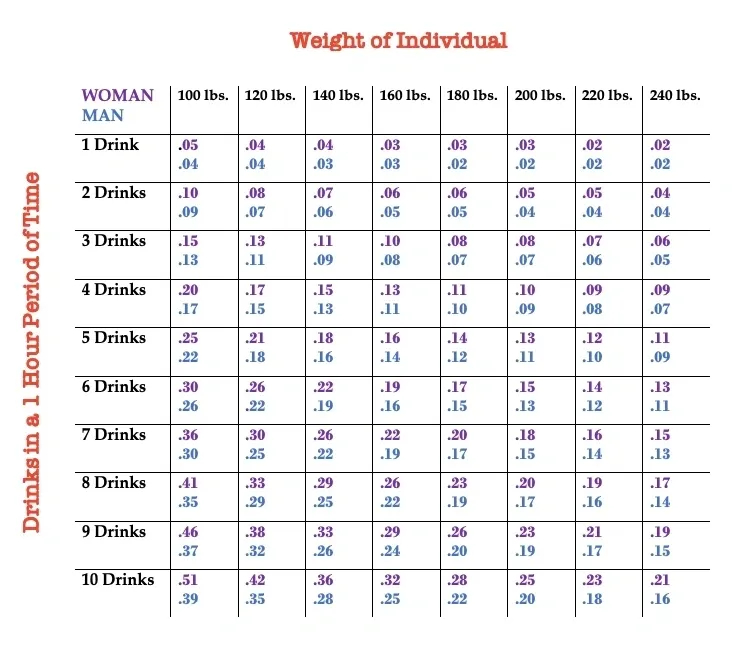In Arizona, it is against the law to drive or be in actual physical control of a motor vehicle while impaired to the slightest degree. But what does that actually mean? The answer is that it ultimately depends on what a jury thinks it means. In other words, it is not precisely defined.
That said, Arizona law has quantified alcohol limitations in a more precise way using a person’s Blood Alcohol Concentration (BAC).
If a person’s BAC is at or above .08 milligrams of ethyl alcohol per 100 milliliters of blood, they are presumed to be impaired to drive a motor vehicle. This is against Arizona law.
Trying to understand how alcohol you consume translates to a BAC number given your specific body type is important. It can help you better understand your body’s limitations. But remember, if you are impaired by alcohol—even to the slightest degree—you can be arrested and charged with DUI regardless of what your BAC number is.
How do you know when your BAC is at, or close to, the .08 mark? There are many factors that go into determining a BAC. Some of the major factors are a persons weight, the amount of drinks consumed, the persons gender and how their body metabolizes alcohol. Every person metabolizes alcohol differently. When a person drinks an alcoholic beverage and their body metabolizes it, their body does two things with the alcohol.
(1) It first goes through an absorption phase, where the alcohol is being absorbed into the body and the BAC is climbing.
(2) Then it goes into an elimination phase, where the alcohol is being eliminated from the body and the BAC is declining.
Speaking in general terms, on average it takes about an hour from the time of ingestion for the body to fully absorb the alcohol and then takes another hour for the body to fully eliminate the alcohol. So, it takes about two hours to fully metabolize an alcoholic drink.
The rate in which any given persons’ body absorbs or eliminates alcohol depends on A TON OF DIFFERENT FACTORS. Some of these factors include:
- gender
- weight
- type of drink
- how much time has gone by
- what that person ate that day
- genetics
- medications taken
- medical conditions
- and many more
Any attempt to predict or calculate your BAC using a chart is not a precise measurement. That said, it can be helpful to get a rough estimation and better understand how your body type deals with alcohol on average.
For purposes of this chart, one drink is considered a 12 oz average beer, a 1 oz shot of liquor, or a 5 oz glass of table wine.
** IMPORTANT ** The following chart is a good general guideline, but does not consider individual metabolism rates, body composition, medications taken or any other specifics. The best way to avoid getting a DUI is to simply not drink and drive.

